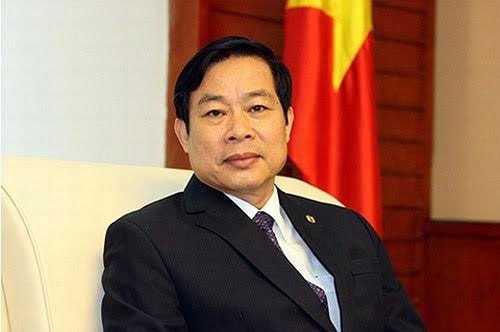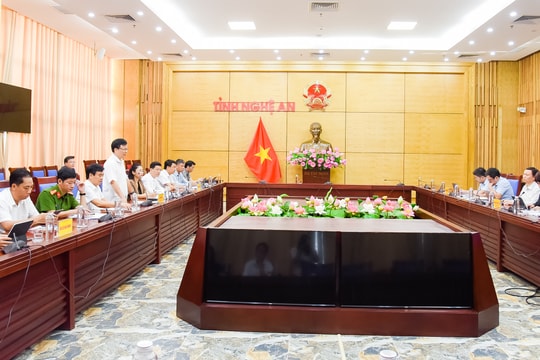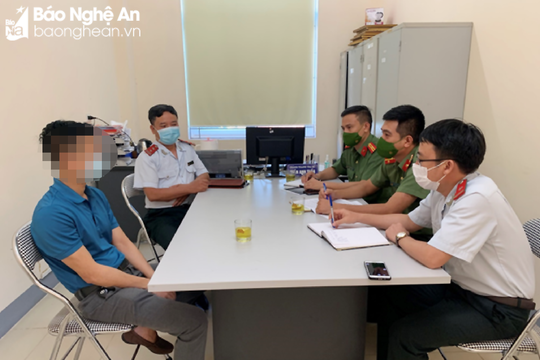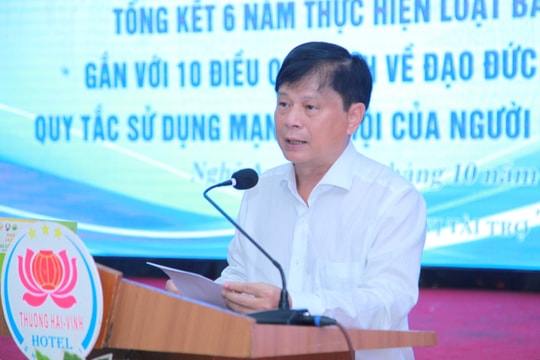Nine new points of the Press Law
Minister of Information and Communications Nguyen Bac Son shared about the new points of the Draft Press Law that was just voted and passed by the National Assembly this morning.
Implementing the 2013 Constitution, especially implementing the provisions in Article 14 and Article 25 of the Constitution, the new Press Law was just passed by the 13th National Assembly, 11th session this morning (April 5, 2016), stipulating a number of new contents compared to the current Press Law as follows:
On the structure of the Law:
- The 1989 Press Law consists of 7 chapters and 31 articles; the 1999 Law amending and supplementing a number of articles of the Press Law added 6 articles and removed 1 article. After the 1999 amendment, the Press Law has 36 articles.
- This Press Law consists of 6 chapters with 61 articles (an increase of 25 articles), of which 32 are newly established articles and 29 articles amend and supplement the provisions of the current Press Law.
The structure of the chapters of this Press Law has removed the chapter on state management of the press, and changed the structure of chapter III (Duties and powers of the press), chapter IV (Press organizations and journalists) of the 1999 Press Law to chapter III (Press organizations) and chapter IV (Press activities) in the new Press Law.
 |
| Minister of Information and Communications Nguyen Bac Son |
Regarding the new content of the Law:
Firstly, regulations on freedom of the press and freedom of speech in the press of citizens: This Press Law has structured Chapter II with 04 articles specifically regulating the freedom of the press and freedom of speech in the press of citizens, in which it is stipulated that citizens have the right to: Create press works, provide information to the press, respond to information in the press, access press information, cooperate with press agencies to produce press products, print and distribute printed newspapers; contribute opinions, criticisms, recommendations, complaints and denunciations in the press against Party organizations, State agencies, socio-political organizations; socio-political and professional organizations; social organizations; socio-professional organizations and members of those agencies and organizations.
Second, regarding the subjects of establishing press agencies, in addition to the subjects of establishing press agencies according to current laws, the new Press Law has added a number of subjects that are allowed to establish scientific journals, such as: Higher education institutions according to the provisions of the Law on Higher Education; scientific research organizations, scientific research and technology development organizations organized in the form of academies and institutes according to the provisions of the Law on Science and Technology; hospitals from provincial level, centrally-run cities or equivalent or higher.
The above regulation allows private educational institutions and scientific and technological organizations with foreign investment to publish scientific journals.
Third, the new Press Law has added regulations on cooperation in press activities, which specifically stipulates the fields and contents in which press agencies are allowed to cooperate with other press agencies, legal entities, and individuals with business registrations appropriate to the cooperation field; the maximum duration of cooperation allowed in radio and television channels serving political tasks, essential information and propaganda according to regulations, and general news and political channels; the maximum duration of cooperation for radio and television agencies to produce entire radio and television channels. Press agencies proactively implement and take responsibility without having to ask for permission from the state management agency of the press, in order to reform administrative procedures and ensure the autonomy and self-responsibility of press agencies.
Fourthly, regarding the press's right to operate, in addition to the provisions of the current Press Law, this Press Law has specifically stipulated the responsibility of agencies, organizations, and responsible individuals to provide information to the press; information that competent agencies, organizations, and individuals have the right to refuse to provide to the press.
In order to protect press sources and the right to work of journalists, compared to the current Press Law, the new Press Law has limited the requirement for press agencies and journalists to only disclose information providers when there is a written request from the Chief Prosecutor of the People's Procuracy, Chief Justice of the People's Court at the provincial level and equivalent or higher, necessary for the investigation and trial of very serious and especially serious crimes. At the same time, the Chief Prosecutor of the People's Procuracy, Chief Justice of the People's Court at the provincial level and equivalent or higher are responsible for organizing the protection of information providers after their names are disclosed.
Fifth, along with clearly defining the rights and obligations of journalists in the law, to highlight the role of journalists and the civic responsibility of journalists, this new Press Law also supplements and legalizes mandatory regulations on professional ethics of journalists; in which it stipulates that the Vietnam Journalists Association has the duty to promulgate and organize the implementation of regulations on professional ethics of journalists; journalists have the obligation to comply with regulations on professional ethics of journalists and will have their press cards revoked if they violate professional ethics causing serious consequences.
Sixth, on business and service activities of press agencies: The new Press Law has more open regulations than the current Press Law on business and service activities of press agencies, as shown in Point c, Clause 2, Article 21, which stipulates: revenue sources of press agencies include revenue from business and service activities of press agencies and units under press agencies.
Seventh, regarding prohibited acts in press activities: Article 9 of the new Press Law stipulates prohibited acts in press activities, which stipulates more specifically and clearly some acts compared to the current Press Law, with the addition of some acts such as: Information on criminal charges without a court verdict, information affecting the normal physical and mental development of children, information about mystical stories that cause confusion in society, negatively affecting social order, safety and health of the community....
The acts of prohibiting posting and broadcasting information stipulated in Clause 1 and Clause 2, Article 9 are compatible with the provisions of the 2015 Penal Code, other prohibited acts are compatible with the Civil Code and other laws, ensuring feasibility in practice.
Eighth, on correction and handling of violations: In order to ensure the legitimate rights and interests of agencies, organizations and individuals whose information is falsely reported by the press, the new Press Law has added a number of new regulations on correction such as: Electronic press, in addition to posting and broadcasting corrections and apologies, must also immediately remove the false information that has been posted and broadcast. Press agencies and general electronic information sites that have posted and broadcast information from other press agencies with content that requires correction and apology must also re-post the correction and errors of the violating press agency. At the same time, specific regulations are provided for the position of correction for each type of press.
This Press Law has added new regulations on handling violations such as: Press agencies have their press operation licenses revoked, licenses to publish additional press publications, supplements, produce additional radio channels, television channels, and specialized pages of electronic newspapers, and agencies and organizations have their licenses to publish special issues and newsletters revoked when posting or broadcasting information that violates the provisions of Article 9, causing very serious or especially serious consequences.
Ninth, the new Press Law has codified the provisions of the Government's Decrees to be included in the law, and at the same time added a number of new provisions to regulate press activities, specifically the provisions on: State policies on press development; changes in the governing bodies of press agencies; cooperation activities of Vietnamese press with foreign countries; press activities of foreign press, foreign representative agencies, foreign organizations in Vietnam; protection of the content of radio programs, television programs, electronic newspapers; feedback on information...
We believe that the new Press Law will create an important legal corridor for the country's revolutionary press to continuously develop sustainably, making increasingly worthy contributions to the cause of building and firmly protecting the Socialist Republic of Vietnam.
According to Vietnamnet.vn
| RELATED NEWS |
|---|






